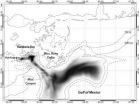(Press-News.org) PHOENIX, Ariz. — March 17, 2014 — Using genomic analysis to study cancer in dogs can help develop new therapies for humans with cancer, according to a proof-of-concept study led by the National Cancer Institute (NCI) and the Translational Genomics Research Institute (TGen).
Pure-breed dogs, whose genetics have been standardized by hundreds of years of human intervention, provide highly predictable genetic models useful in designing clinical trials, in which specific drugs are matched to the molecular profiles of human patients, according to the study published today in the scientific journal PLOS ONE.
"Our canine companions are not only 'Man's Best Friend,' but our study shows that dogs also can help human patients pursue battles against various types of cancer," said Dr. Jeffrey Trent, TGen President and Research Director and the study's senior author. "Not only do dogs with cancer benefit from this research, but people do, as well."
While there are, relatively, many genetic differences among humans with the same type of cancer, there are far fewer genetic differences among dogs of the same breed, making it vastly easier to identify and study the genes driving canine cancers.
The process of integrating naturally occurring cancers in dogs into the general studies of human cancer biology and therapy is known as comparative oncology. The identification of specific drugs to treat individuals based on their specific genetic or molecular make-up is often referred to as personalized medicine, or PMed.
Genetic samples from 31 dogs were analyzed in the proof-of-concept study organized under NCI's Comparative Oncology Trials Consortium (COTC). Genetic samples were derived for this study from tumor biopsy samples. No dogs were harmed in any way in this clinical study.
"Complex models are needed to effectively evaluate PMed study designs, and this proof-of-concept trial validates the dog with cancer as a model for clinical evaluation of novel PMed approaches," said Dr. Melissa Paoloni, the study's lead author and former director of the COTC. "Comparative oncology models have the potential to expedite this evaluation and lead advancements in personalized medicine."
The COTC study was organized according to the propensity of different breeds to develop particular types of cancer. The study included Scottish terriers with bladder transitional cell carcinoma, golden retrievers with lymphoma, American cocker spaniels with melanoma, and a fourth group of dogs open to all cancer types.
The study's 31 samples of dog tumors was compared to 40 normal canine tissues samples as a way of estimating the variance in gene expression. The target turnaround time for this analysis was 7 days, but the study averaged this process in less than 5 days.
"Overall the turnaround for sample analyses fit a relevant clinical window for future comparative oncology trials to model human PMed advancements," said Dr. William Hendricks, a TGen Staff Scientist and another author of the study. "Future comparative oncology studies, optimizing the delivery of PMed strategies, may aid cancer drug development."
"Data from this study serves as rationale to now include dogs with spontaneous cancers in the advancement and optimization of PMed for human patients," according to the study, Prospective molecular profiling of canine cancers provides a clinically relevant comparative model for evaluating personalized medicine (PMed) trials.
INFORMATION:
The study can be located at: http://dx.plos.org/10.1371/journal.pone.0090028.
Also contributing to this study were: Van Andel Research Institute; and the veterinary medicine colleges of Colorado State University, University of Wisconsin-Madison, University of Minnesota, Purdue University, and Michigan State University.
This study was funded by the National Institutes of Health (NIH) under a grant titled: Canine Hereditary Cancer Consortium. Research reported in this press release was supported by the National Cancer Institute under award number UC2CA148149. The content is solely the responsibility of the authors and does not necessarily represent the official views of the National Cancer Institute or the National Institutes of Health.
About TGen
Translational Genomics Research Institute (TGen) is a Phoenix, Arizona-based non-profit organization dedicated to conducting groundbreaking research with life changing results. TGen is focused on helping patients with cancer, neurological disorders and diabetes, through cutting edge translational research (the process of rapidly moving research towards patient benefit). TGen physicians and scientists work to unravel the genetic components of both common and rare complex diseases in adults and children. Working with collaborators in the scientific and medical communities literally worldwide, TGen makes a substantial contribution to help our patients through efficiency and effectiveness of the translational process. For more information, visit: http://www.tgen.org.
Press Contact:
Steve Yozwiak
TGen Senior Science Writer
602-343-8704
syozwiak@tgen.org
TGen-led study spotlights dog DNA role in developing new therapies for human cancers
Study shows timeframe for canine sample analysis fits clinical window for human medical advancements
2014-03-18
ELSE PRESS RELEASES FROM THIS DATE:
Kessler Foundation researchers link body temperature to relapsing-remitting MS and fatigue
2014-03-18
West Orange, NJ. March 18, 2014. Kessler Foundation researchers have demonstrated for the first time ever that body temperature is elevated endogenously in relapsing-remitting multiple sclerosis (RRMS) and linked to worse fatigue. The article was published ahead of print on Feb. 21, 2014 in Archives of Physical Medicine & Rehabilitation. Sumowski J, Leavitt V: Body temperature is elevated and linked to fatigue in relapsing-remitting multiple sclerosis, even without heat exposure. doi:10.1016/j.apmr.2014.02.004.
Researchers measured body temperature in 50 patients with ...
NIST chips help BICEP2 telescope find direct evidence of origin of the universe
2014-03-18
The view back in time—way back to the origins of the universe—just got clearer. Much clearer.
A team of U.S. cosmologists using the BICEP2 telescope at the South Pole announced this week that they have discovered the first direct evidence of the rapid inflation of the universe at the dawn of time, thanks in part to technology developed and built by the National Institute of Standards and Technology (NIST).
The BICEP2 camera relies, in part, on the extraordinary signal amplification made possible by NIST's superconducting quantum interference devices (SQUIDs).
The ...
NRL models Deepwater Horizon oil spill
2014-03-18
Dr. Jason Jolliff is an oceanographer with the U.S. Naval Research Laboratory (NRL). "The emphasis here," he says, "is on developing models of the ocean environment to help the naval warfighter." His most recent paper, published in Ocean Modeling (March 2014), shows NRL can also forecast where oil will go following a major spill.
"If you're going to do forecasting," he says, "you have to get the ocean circulation correct. It's fundamental to all else." Jolliff plugged the distribution of surface oil following the 2010 Deepwater Horizon oil spill—when it was still well ...
Canadian drinking-age laws have significant effect on deaths among young males
2014-03-18
A recent study by a University of Northern British Columbia-based scientist associated with the UBC Faculty of Medicine and UNBC's Northern Medical Program demonstrates that Canada's drinking-age laws have a significant effect on youth mortality.
The study was published yesterday in the international journal Drug and Alcohol Dependence. In it, Dr. Russell Callaghan writes that when compared to Canadian males slightly younger than the minimum legal drinking age, young men who are just older than the drinking age have significant and abrupt increases in mortality, especially ...
Global food trade can alleviate water scarcity
2014-03-18
Trading food involves the trade of virtually embedded water used for production, and the amount of that water depends heavily on the climatic conditions in the production region: It takes, for instance, 2.700 liters of water to produce 1 kilo of cereals in Morocco, while the same kilo produced in Germany uses up only 520 liters. Analyzing the impact of trade on local water scarcity, our scientists found that it is not the amount of water used that counts most, but the origin of the water. While parts of India or the Middle East alleviate their water scarcity through importing ...
Using big data to identify triple-negative breast, oropharyngeal, and lung cancers
2014-03-18
Researchers at Case Western Reserve University and colleagues used "big data" analytics to predict if a patient is suffering from aggressive triple-negative breast cancer, slower-moving cancers or non-cancerous lesions with 95 percent accuracy.
If the tiny patterns they found in magnetic resonance images prove consistent in further studies, the technique may enable doctors to use an MRI scan to diagnose more aggressive cancers earlier and fast track these patients for therapy. Their work is published online in the journal Radiology at http://pubs.rsna.org/doi/full/10.1148/radiol.14131384. ...
Strongest evidence yet of 2 distinct human cognitive systems
2014-03-18
BUFFALO. N.Y. — Cognitive scientists may have produced the strongest evidence yet that humans have separate and distinct cognitive systems with which they can categorize, classify, and conceptualize their worlds.
"Our finding that there are distinct, discrete systems has implications for the fields of child development and cognitive aging," says lead researcher, cognitive psychologist J. David Smith, PhD, of the University at Buffalo.
"These distinct systems may have different developmental courses as the cortex matures," he says, "meaning that children may categorize ...
Ipilimumab in advanced melanoma: Added benefit for non-pretreated patients not proven
2014-03-18
The German Institute for Quality and Efficiency in Health Care (IQWiG) already assessed the added benefit of ipilimumab in advanced melanoma in 2012. A considerable added benefit was found for patients who had already received previous treatment. In the new dossier compiled by the drug manufacturer, the drug was now compared with the appropriate comparator therapy dacarbazine specified by the Federal Joint Committee (G-BA) also for non-pretreated patients.
Again, the manufacturer claimed a noticeable gain in survival time and thus an added benefit. This time, IQWiG did ...
Scientists using UNH detector illuminate cause of sun's 'perfect storm'
2014-03-18
DURHAM, NH –– In a paper published today in Nature Communications, an international team of scientists, including three from the University of New Hampshire's Space Science Center, uncovers the origin and cause of an extreme space weather event that occurred on July 22, 2012 at the sun and generated the fastest solar wind speed ever recorded directly by a solar wind instrument.
The formation of the rare, powerful storm showed striking, novel features that were detected by a UNH-built instrument on board NASA's twin-satellite Solar TErrestrial RElations Observatory (STEREO) ...
New airborne GPS technology for weather conditions takes flight
2014-03-18
GPS technology has broadly advanced science and society's ability to pinpoint precise information, from driving directions to tracking ground motions during earthquakes. A new technique led by a researcher at Scripps Institution of Oceanography at UC San Diego stands to improve weather models and hurricane forecasting by detecting precise conditions in the atmosphere through a new GPS system aboard airplanes.
The first demonstration of the technique, detailed in the journal Geophysical Research Letters (GRL), is pushing the project's leaders toward a goal of broadly implementing ...
LAST 30 PRESS RELEASES:
Why do we get a skip in our step when we’re happy? Thank dopamine
UC Irvine scientists uncover cellular mechanism behind muscle repair
Platform to map living brain noninvasively takes next big step
Stress-testing the Cascadia Subduction Zone reveals variability that could impact how earthquakes spread
We may be underestimating the true carbon cost of northern wildfires
Blood test predicts which bladder cancer patients may safely skip surgery
Kennesaw State's Vijay Anand honored as National Academy of Inventors Senior Member
Recovery from whaling reveals the role of age in Humpback reproduction
Can the canny tick help prevent disease like MS and cancer?
Newcomer children show lower rates of emergency department use for non‑urgent conditions, study finds
Cognitive and neuropsychiatric function in former American football players
From trash to climate tech: rubber gloves find new life as carbon capturers materials
A step towards needed treatments for hantaviruses in new molecular map
Boys are more motivated, while girls are more compassionate?
Study identifies opposing roles for IL6 and IL6R in long-term mortality
AI accurately spots medical disorder from privacy-conscious hand images
Transient Pauli blocking for broadband ultrafast optical switching
Political polarization can spur CO2 emissions, stymie climate action
Researchers develop new strategy for improving inverted perovskite solar cells
Yes! The role of YAP and CTGF as potential therapeutic targets for preventing severe liver disease
Pancreatic cancer may begin hiding from the immune system earlier than we thought
Robotic wing inspired by nature delivers leap in underwater stability
A clinical reveals that aniridia causes a progressive loss of corneal sensitivity
Fossil amber reveals the secret lives of Cretaceous ants
Predicting extreme rainfall through novel spatial modeling
The Lancet: First-ever in-utero stem cell therapy for fetal spina bifida repair is safe, study finds
Nanoplastics can interact with Salmonella to affect food safety, study shows
Eric Moore, M.D., elected to Mayo Clinic Board of Trustees
NYU named “research powerhouse” in new analysis
New polymer materials may offer breakthrough solution for hard-to-remove PFAS in water
[Press-News.org] TGen-led study spotlights dog DNA role in developing new therapies for human cancersStudy shows timeframe for canine sample analysis fits clinical window for human medical advancements




